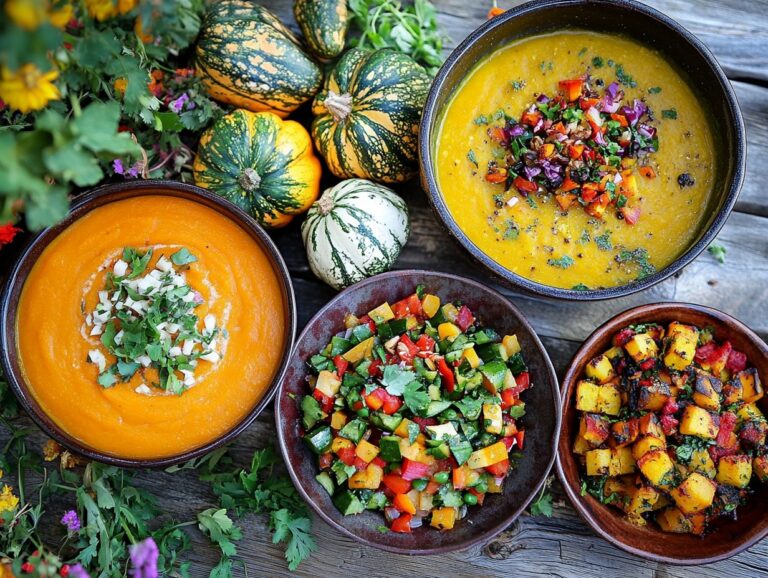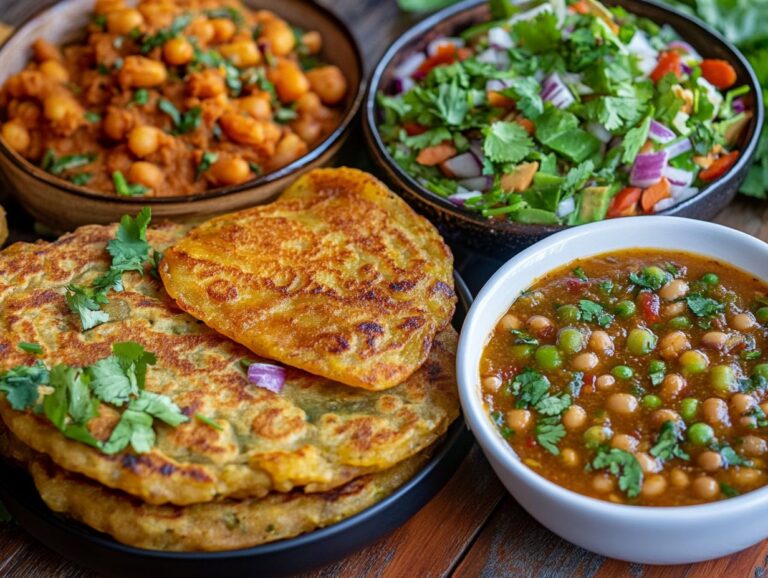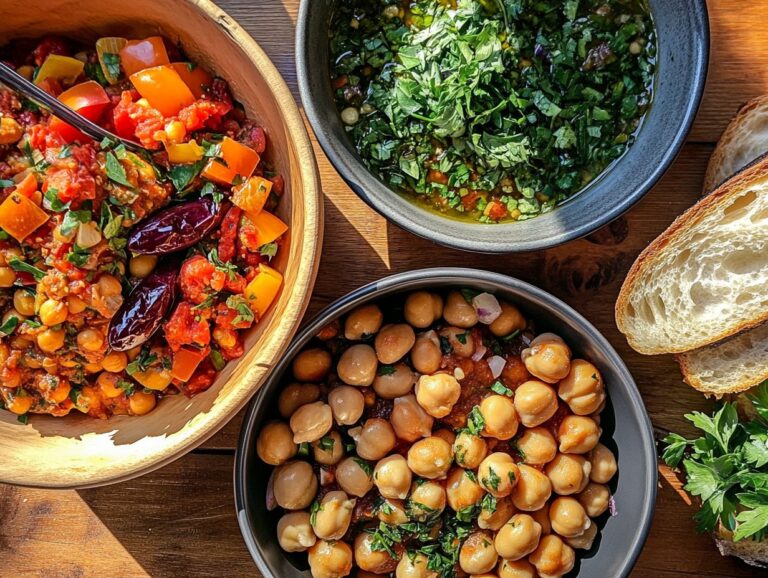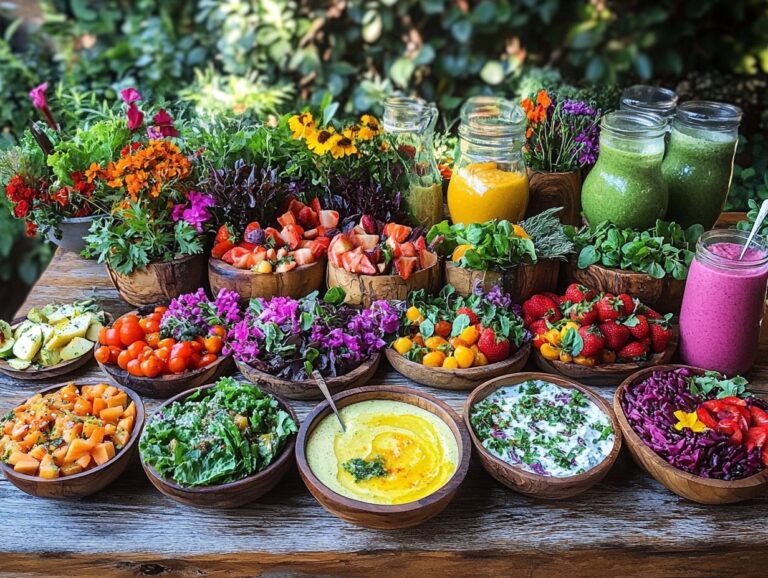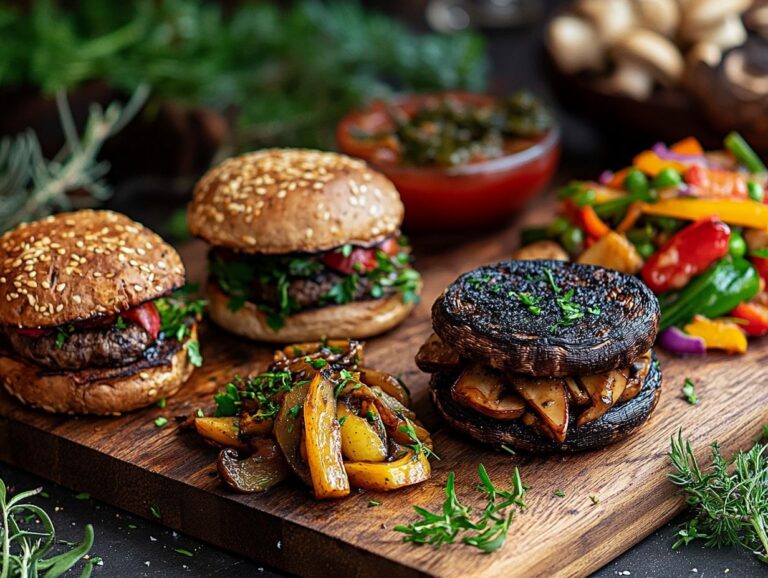Heart health is becoming an increasingly important concern for many individuals, making it essential to understand the critical role that diet plays in maintaining it. This article delves into the significance of cholesterol and how adopting a vegan diet can greatly enhance heart health by lowering cholesterol levels. You will discover key nutrients that support a healthy heart, as well as delicious vegan recipes for every meal of the day. Additionally, we will provide practical tips for incorporating these meals into your routine, along with other lifestyle changes that can further improve heart health. Join us on this journey to a healthier heart!
The Importance of Heart Health
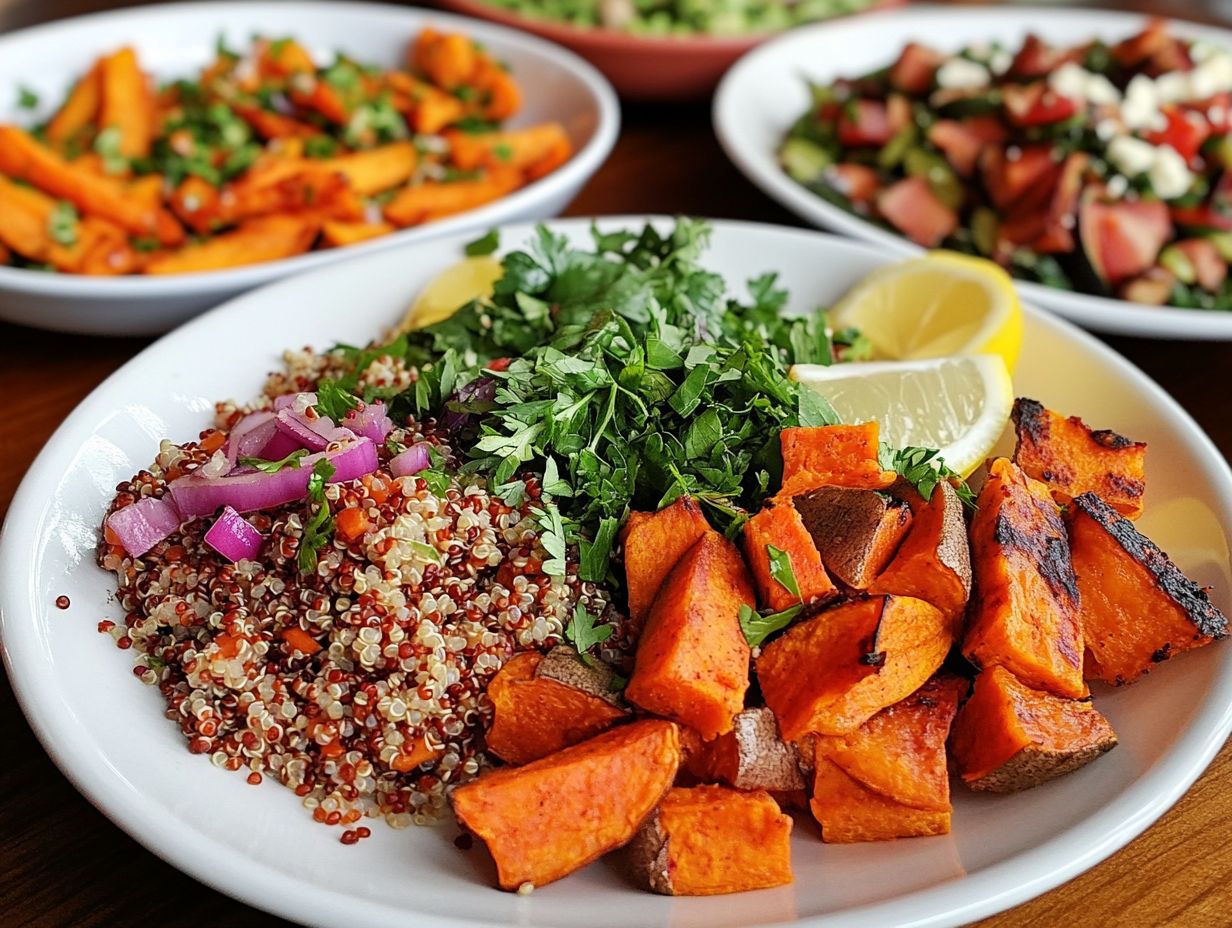
Heart health is a vital component of overall well-being, as maintaining healthy cholesterol and blood pressure levels can significantly reduce the risk of heart disease. Emphasizing the DASH diet and Mediterranean diet can aid in formulating heart-friendly meals that cater to wellness and preventive health.
Embracing a heart-healthy lifestyle that includes nutritious foods such as fruits, vegetables, whole grains, legumes, nuts, and seeds not only enhances cardiovascular health but also boosts energy levels and improves quality of life.
The significance of a balanced diet for heart health cannot be overstated. It is essential to understand the role of diet in both heart disease and its prevention in order to promote healthy eating habits throughout one’s life.
Understanding Cholesterol and its Effects
Cholesterol is a waxy substance that the body requires for various functions; however, high cholesterol levels are associated with an increased risk of heart disease and complications such as high blood pressure.
Understanding the different types of cholesterol—HDL (good cholesterol) and LDL (bad cholesterol)—is essential for making healthier food choices. Maintaining the proper balance of HDL and LDL is crucial, as elevated levels of LDL can lead to plaque buildup in the arteries, while higher levels of HDL can help reduce this risk.
A diet rich in fruits, vegetables, whole grains, and healthy fats, such as those found in nuts and avocados, can significantly impact cholesterol levels. Additionally, limiting saturated fats and processed sugars can aid in cholesterol management and contribute to better blood pressure control, which is vital for preventing heart disease.
Vegan Diet, Plant-Based Eating, and Low-Cholesterol
A vegan diet centered on whole plant foods is the most humane way of eating for animals and is also an effective means of maintaining low cholesterol levels and improving heart health.
This diet includes a wide variety of fruits, vegetables, legumes, whole grains, nuts, and seeds, all of which are rich in antioxidants, fiber, and healthy fats that contribute to cardiovascular well-being.
Additionally, a vegan diet is a sustainable way of eating that aligns with ethical choices and supports cardiovascular health through nutrient-rich foods.
How a Vegan Diet Can Improve Heart Health
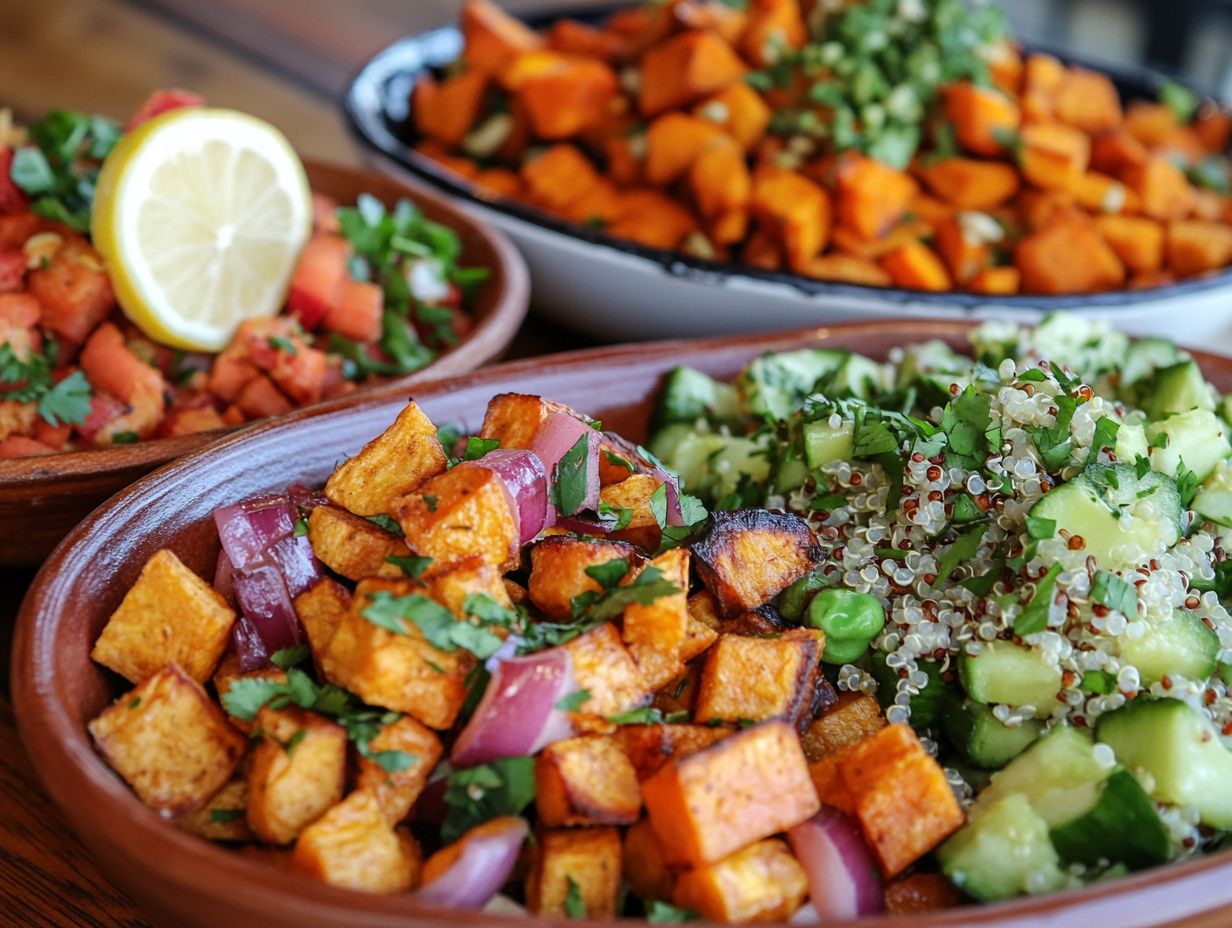
A vegan diet can significantly improve heart health by promoting healthy cholesterol levels, thanks to the high consumption of nutrient-rich foods that are rich in fiber, antioxidants, and omega-3 fatty acids.
By reducing saturated fats and cholesterol, which are commonly found in animal products, a vegan diet lowers the risk of heart disease. Individuals can maximize their nutrition and support overall heart health by incorporating a variety of healthy foods, including fruits, vegetables, legumes, and nuts.
This diet encourages the intake of anti-inflammatory foods such as berries, leafy greens, and seeds like flaxseeds and chia seeds, which are packed with vitamins and minerals that help reduce inflammation—a major contributing factor to heart disease.
Additionally, a vegan diet minimizes processed foods and sugar intake, which aids in regulating blood pressure and improving blood circulation. Many individuals find that adopting this diet leads to healthier eating habits overall.
Key Nutrients for a Healthy Heart
Key nutrients essential for heart health include fiber, healthy fats, vitamins, and minerals, all of which play a crucial role in promoting optimal cardiovascular function and preventing heart disease.
A balanced diet that incorporates a variety of whole foods, such as fruits, vegetables, legumes, and grains, can provide individuals with the necessary nutrients to maintain optimal cardiovascular health.
Essential Nutrients in a Vegan Diet
A vegan diet includes several nutrients that are important for heart health, such as sources of calcium, potassium-rich foods, and a variety of vitamin-rich options.
Plus these essential nutrients, plant-based diets are high in fiber, which aids digestion and plays a significant role in lowering cholesterol, thus benefiting cardiovascular health.
For instance, legumes like lentils and chickpeas provide an excellent source of both protein and fiber, contributing to heart health. Nuts and seeds, which are rich in healthy fats and magnesium, help regulate blood pressure and improve circulation.
Furthermore, an emphasis on a diverse array of colorful fruits and vegetables ensures a high intake of antioxidants, which help reduce oxidative stress and promote overall heart health.
Delicious Vegan Low-Cholesterol Recipes
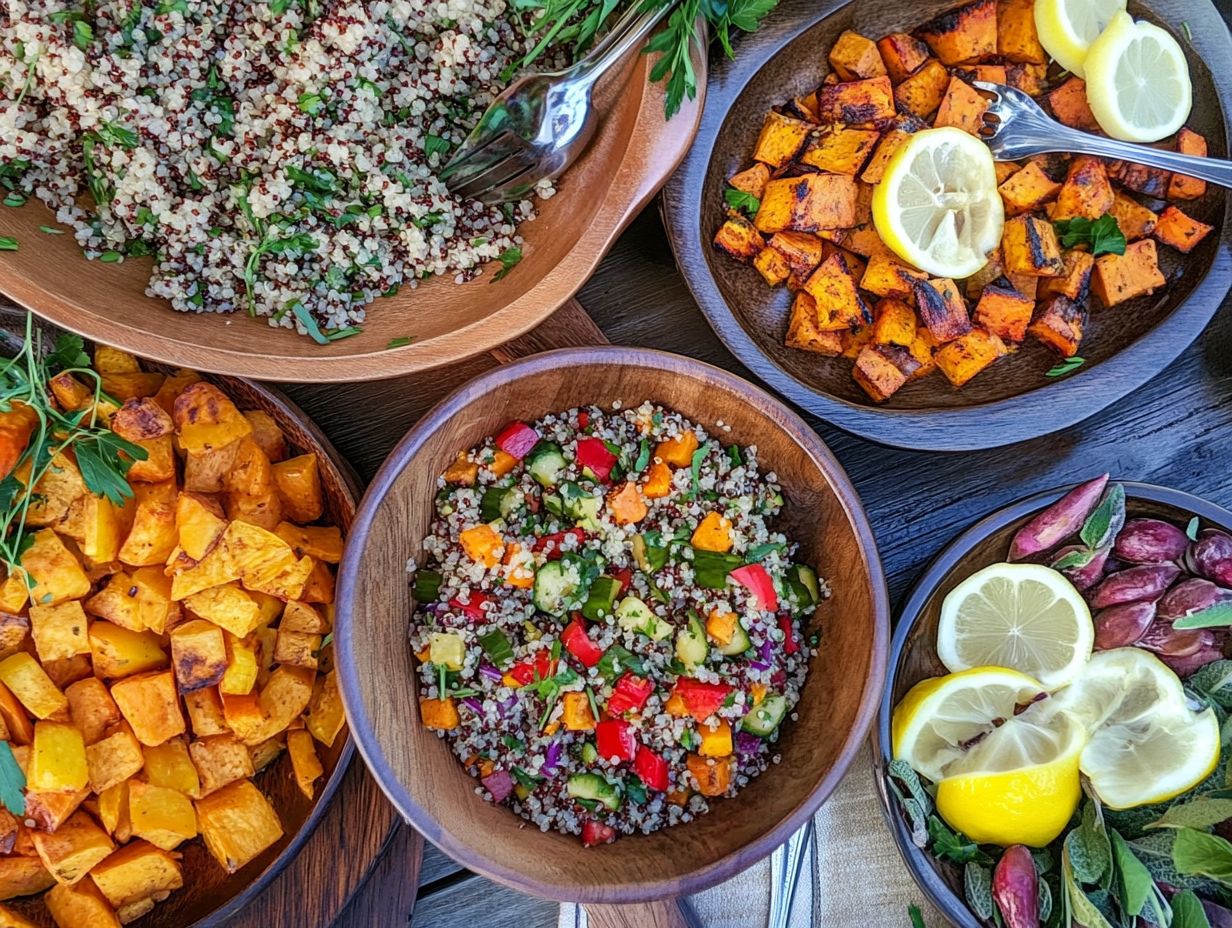
Here are some examples of vegan low-cholesterol recipes designed to be heart-healthy meals.
These recipes provide individuals with the opportunity to enjoy plant-based sources of protein, healthy fats, and a variety of fruits and vegetables that deliver great taste without sacrificing nutrition.
By employing innovative cooking techniques and meal prep strategies, individuals can make the healthiest choices for their heart health while also enjoying the cooking experience.
Breakfast Ideas and Smoothies Bowls
A heart-healthy vegan breakfast is essential for starting the day off right and ensuring good nutrition throughout the day. It provides the energy and nutrients needed to fuel the body.
With a bit of creativity, quick and easy breakfast meals can be prepared. Options such as whole grain toast topped with smashed avocado and tomato, or a berry smoothie made with almond milk, nut butter, and spirulina—one of nature’s most potent superfoods—are not only delicious but also rich in antioxidants, healthy fats, and fiber that promote heart health.
Additionally, make-ahead options like quinoa breakfast bowls with nuts and fruits can simplify the process of enjoying heart-healthy meals in the morning.
Lunch and Dinner Recipes
Enjoying heart-healthy vegan lunch and dinner recipes allows for a diverse range of flavorful, nutritious, and filling meals. Incorporating culinary herbs and spices, such as garlic, ginger, and cardamom, along with a variety of vegetables and whole grains like brown rice and quinoa, enhances the taste of these recipes while also providing essential nutrients that support heart health.
These recipes offer various dietary options and promote meal diversity. By employing different culinary techniques such as roasting, steaming, or sautéing, simple ingredients can be transformed into vibrant dishes that delight our taste buds.
For instance, quinoa, lentils, and chickpeas serve as excellent plant-based protein sources, while seasonal vegetables contribute antioxidants and fiber. Spices like turmeric and cumin not only add flavor but also provide anti-inflammatory properties essential for heart-friendly meals.
These innovative cooking methods make preparing heart-healthy dishes an exciting culinary adventure that nourishes both the body and the soul.
Snack and Dessert Options
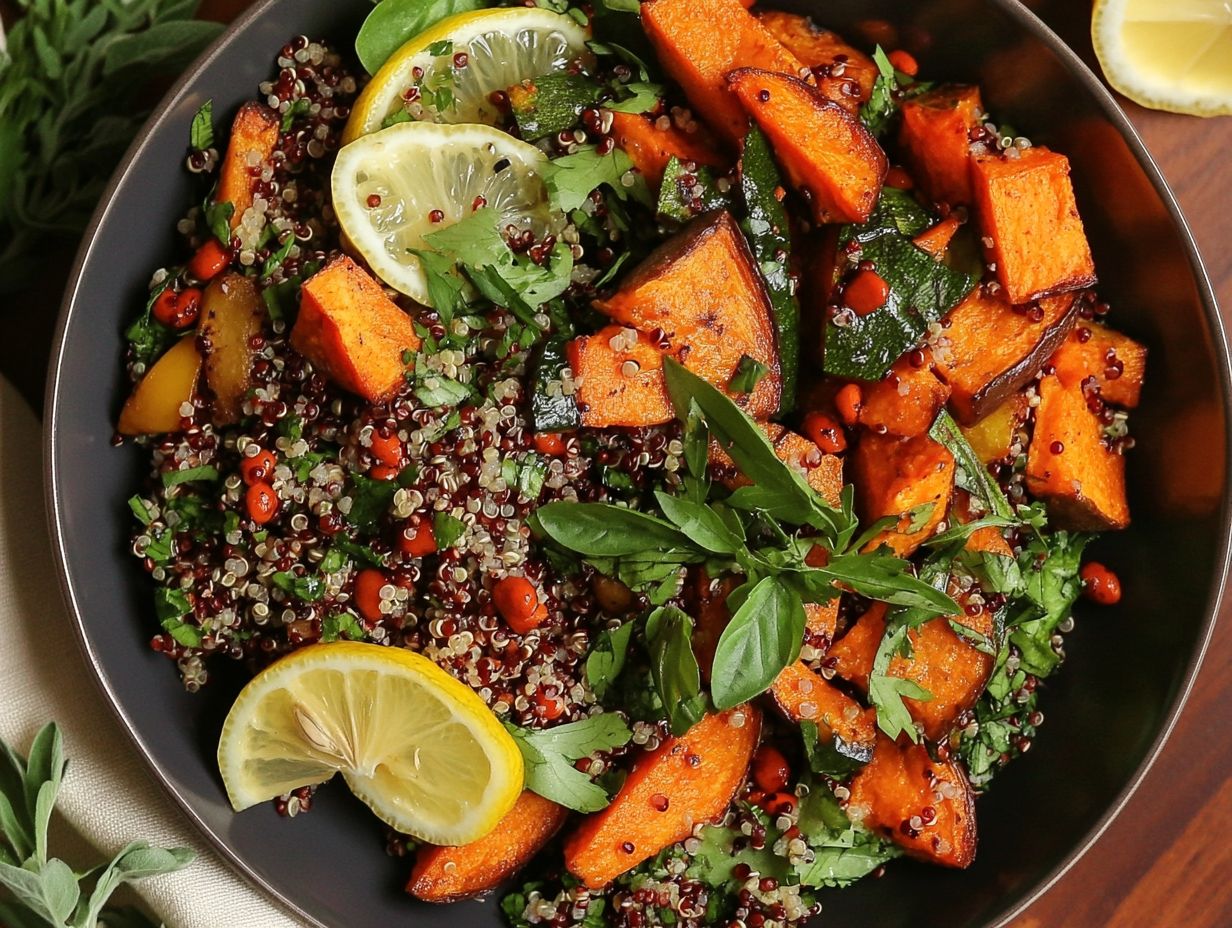
Heart-healthy vegan snacks and desserts provide a delightful and nutritious way to satisfy cravings while ensuring the body receives essential nutrients. These snacks and desserts, which are rich in superfoods, include energy balls made from dates and nuts, as well as treats based on whole fruits.
They offer great flavor and nutritional benefits without unhealthy levels of fat and sugar. Mindful eating, alongside low-sodium and low-fat recipes, makes it possible to indulge in these heart-healthy options without guilt. The wide variety of available vegan desserts and snacks encourages creativity and enjoyment in the kitchen.
For instance, delicious chia seed puddings topped with fresh berries or refreshing avocado chocolate mousse are both low in saturated fat and high in vitamins and minerals, offering a wonderful treat for your taste buds and cardiovascular health.
Tips for Incorporating Vegan Meals into Your Diet
Incorporating vegan meals into your diet can be enjoyable and fulfilling with the right meal planning and cooking techniques tailored to your dietary needs.
By utilizing food substitutions and creating new recipes, you can prepare satisfying and nutritious vegan meals that take advantage of the wide variety of plant-based foods available.
These tips are especially helpful for those transitioning to a vegan diet or for individuals who want to increase the number of plant-based meals, including smoothies, salads, and soups, in their weekly meal plan without drastically altering their meal structure, time constraints, or taste preferences.
Meal Planning and Shopping Strategies
Effective meal planning and shopping techniques can help you incorporate vegan meals into your regular diet by making ingredients more accessible and allowing for better portion control, aligning with holistic nutrition and dietary guidelines.
Creating weekly meal plans that focus on nutrient-dense foods and seasonal produce simplifies the shopping process and enhances the flavor and nutrition of the meals you prepare. Staying informed about current food trends can also help you discover new ingredients and recipes to keep your meals interesting.
For instance, consider adding popular ingredients like quinoa, chickpeas, and plant-based proteins to your meal plans to introduce variety and emphasize balanced nutrition.
Selecting ingredients that have versatile uses and can be included in multiple dishes can streamline both shopping and cooking. Learning about portion control is essential, as it helps reduce food waste—since uneaten food often ends up being discarded—and ensures that you consume enough to feel satisfied without overindulging.
Overall, adequate meal planning promotes healthy lifestyle changes while allowing for creativity and experimentation with different flavors and cuisines.
Other Lifestyle Changes for a Healthy Heart
Plus adopting a vegan diet, making other lifestyle changes is crucial for maintaining heart health and overall well-being.
Regular exercise, the cultivation of healthy habits, and the implementation of stress management techniques are essential for promoting cardiovascular health.
Exercise and Stress Management
Exercise and stress management play a crucial role in maintaining heart health. Regular physical activity helps individuals control their weight, manage cholesterol levels, and improve blood pressure.
Engaging in aerobic exercise, strength training, and stress management programs like yoga and meditation can enhance cardiovascular health by alleviating stress. These healthy lifestyle behaviors positively impact cardiovascular health and overall quality of life.
Various forms of exercise, such as brisk walking, cycling, and swimming, offer physical benefits while also enhancing mental and emotional stability. These activities stimulate the production of endorphins, which contribute to feelings of well-being and help reduce anxiety.
Similarly, mindfulness and breathing exercises are effective in managing daily stressors that could adversely affect heart health. Adopting a holistic approach that incorporates diverse physical activities and mental wellness techniques ensures optimal heart care, leading to a happier and healthier life.
